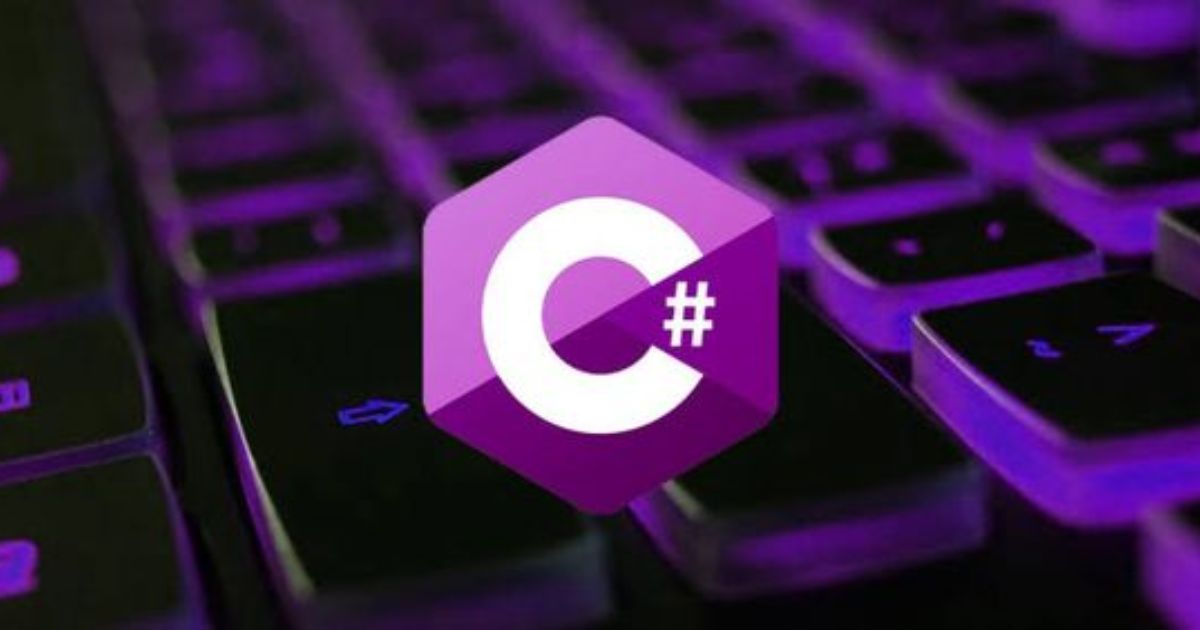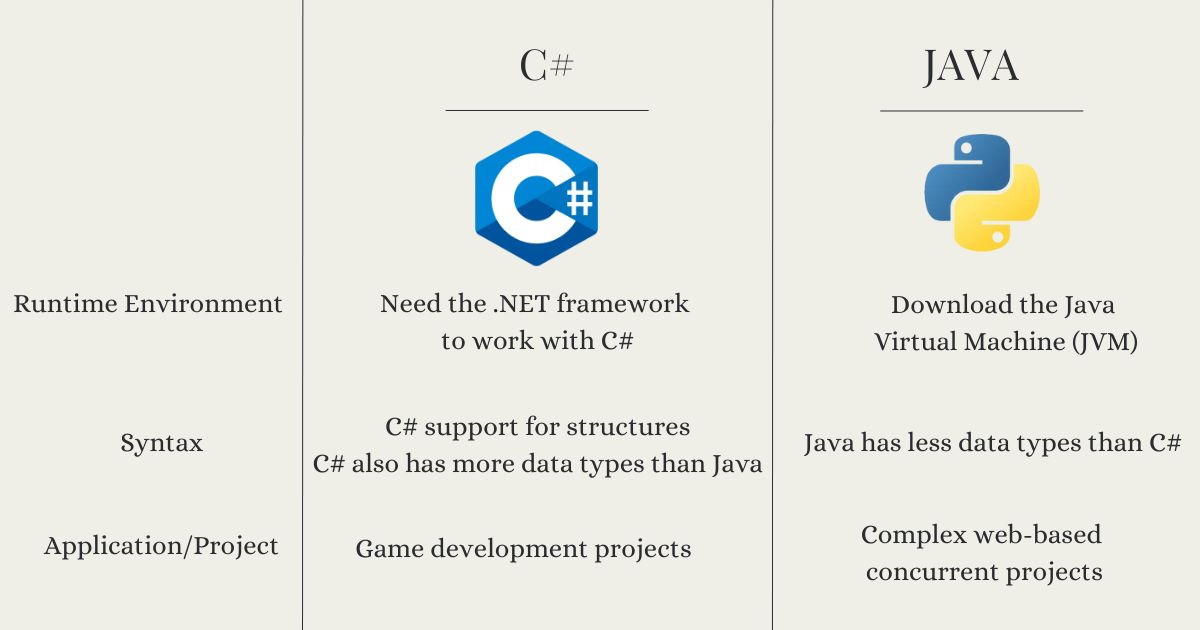Java vs C#: Differences & Choose The Right Language
Java and C# are two high-level programming languages that are currently in great demand for recruitment and employment. Therefore, when you want to choose a new language to learn and work, these are two inconclusive choices. These two languages have many similarities, so many people wonder which language should choose to learn. What are the differences between them? Which language is better, stronger, and more likely to get a job?
If you are still wondering about these questions revolving around C# and Java, this article is for you.
When starting to compare C# and Java, we should begin with the stories about their origins.
Basic Knowledge of Java

Java is a high-level programming language released by Sun Microsystems in 1995. Currently, Microsystems is owned by Oracle Corporation.
Java is known to be simple, portable, secure, and powerful. Even though it was released over twenty years ago, Java is still one of the most popular programming languages today.
One reason people love Java is the Java Virtual Machine, which ensures that the same Java code can run on different operating systems and platforms. With Java, write once and run anywhere.
Java can be used for many things, including software development, mobile applications, and large system development. As of 2019, 88% of all smartphones running on Android, the mobile operating system, are written in Java. Knowing Java opens many doors for you as a programmer.
Basic Knowledge of C#

C# (pronounced "C sharp") is an object-oriented programming language developed by Microsoft as the starting point for their .NET plans.
Microsoft developed C# based on C++ and Java. C# is described as a language that strikes a balance between C++, Visual Basic, Delphi, and Java. This is also why the two languages have so much in common.
This programming language can be used to create interactive websites, mobile apps, video games, augmented reality (AR), virtual reality (VR), desktop applications, and back-end services.
For example, the Pokemon Go mobile game and the Stack Overflow website are built with frameworks that can run with C# (Unity and ASP.NET, respectively).
The Difference Between C# and Java

In recent years, there has been a fierce debate in the development community about which language is better - Java or C#. To answer this question, we will list some of the differences between the two languages to show you the advantages and disadvantages of each language.
Runtime Environment
Both C# and Java are usually compiled and then executed. To run compiled implementations of these programming languages, you need some additional software or a runtime environment.
To be able to use Java, you will need to download the Java Virtual Machine (JVM). JVM is a tool that acts as a runtime environment for Java code. The way it works is simple: Java code is converted into bytecode, which machines can then interpret.
You need the .NET framework to work with C#. The .NET framework consists of two main parts: the common language runtime and the class library. The first one handles running applications: it compiles and executes the code, verifies its safety, manages memory, etc. The class library is a reusable collection of types that simplifies the implementation of basic tasks, such as accessing files and collecting data.
Syntax
Because C# was developed based on C++ and Java, and Java was influenced by the same C-style languages, the syntax of the two languages is quite similar.
In fact, at the level of statements and expressions, C# and Java work quite similarly. However, some minor differences appear when we move to type definition.
With Java, you have to be explicit whenever you want to implement a new interface or extend a class. However, C# does not need to do this: it will derive them from the data type of the parent class or interface.
C# also has more data types than Java. Java has seven primitive data types and three non-primitive types. C# has two groups of types: nine value types and six reference types. Perhaps the biggest difference between C# and Java in terms of syntax is C#'s support for structures. They can be used as lightweight classes (less than 16 bytes) but are classified as value types.
Application/Project
Java can be used for many things, including software development, mobile applications, and large system development.
This programming language allows you to build interactive websites, mobile applications, game design, AR/VR, desktop applications, etc.
Java is suitable for complex web-based concurrent projects, while C# is perfect for game development projects.
Some other characteristics between the two languages
| JAVA | C# | |
| Cross-platform | Java is very efficient for cross-platform with its bytecode | Compared to Java, C# needs to improve this feature |
| Tools | Eclipse, NetBeans, IntelliJ IDEA | Visual Studio, MonoDevelop, #develop |
C# vs Java: Which Language Should You Choose?
If you consider security or execution speed, both languages get a balanced score. However, Java has an advantage when compared to C# in that Java can support many different operating systems without recompiling code. C# can only run on Windows and Mac OS X and cannot run on Linux.
When choosing a suitable language for themselves, programmers rely on the requirements of the project as well as their career orientation. Note that we should focus on using a language to ensure that the project can be developed easily and effectively.
For example, if you are developing an application for Windows computers or developing games, choose C#, but if you are developing an application for Android phones, complex Web, choose Java.
Conclusion
In conclusion, when deciding between Java and C#, it's essential to consider the specific needs of your project, your existing ecosystem, and your long-term goals. Both languages are powerful tools, and your choice should align with your project’s requirements, team expertise, and future scalability.
After all, no language is the strongest, and no language is stronger than the other in all aspects. Each language has its strengths in different aspects. You should choose a language that is suitable for your project requirements as well as your career orientation.
To learn more about these two languages in depth, you can sign up for Skilltrans courses today. We have useful courses at the most preferential prices.

Meet Hoang Duyen, an experienced SEO Specialist with a proven track record in driving organic growth and boosting online visibility. She has honed her skills in keyword research, on-page optimization, and technical SEO. Her expertise lies in crafting data-driven strategies that not only improve search engine rankings but also deliver tangible results for businesses.



